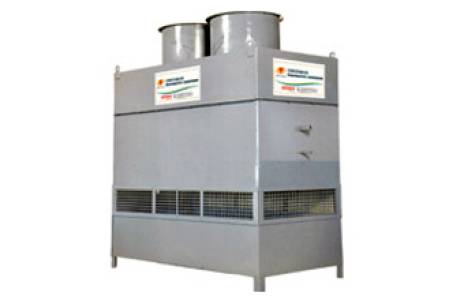Description
Evaporative Condensers: Efficient Cooling for Enhanced Performance
Evaporative condensers represent a highly efficient and cost-effective solution for cooling a wide range of industrial and commercial applications. Unlike traditional air-cooled or water-cooled condensers, they leverage the evaporative cooling principle to significantly reduce energy consumption and operating costs. This description details their advantages, applications, and key features.
Superior Cooling Efficiency Through Evaporation
Our evaporative condensers utilize the natural process of evaporation to dissipate heat. Water is sprayed onto a coil where refrigerant is condensing, and as the water evaporates, it absorbs latent heat from the refrigerant, leading to a significant reduction in condenser temperature and improved cooling efficiency. This results in:
- Lower Energy Consumption: Reduced energy demand compared to traditional air-cooled condensers, leading to substantial cost savings on electricity bills.
- Improved Refrigerant Efficiency: Lower condensing temperatures translate to higher refrigerant efficiency and reduced system load.
- Reduced Operating Costs: Lower energy consumption directly impacts operating expenses, providing a strong return on investment.
- Smaller Footprint: Often requiring a smaller footprint than comparable air-cooled units, saving valuable space.
Diverse Applications Across Industries
Our evaporative condensers are suitable for a variety of applications, including:
- Industrial Refrigeration: Cooling processes in manufacturing, food processing, and cold storage facilities.
- Commercial Refrigeration: Supporting supermarket refrigeration systems, ice making machines, and other commercial cooling needs.
- HVAC Systems: Integrating into large HVAC systems to provide efficient cooling for buildings and industrial spaces.
- Process Cooling: Cooling industrial processes that require precise temperature control.
Key Features & Benefits:
- Durable Construction: Constructed from high-quality materials to withstand demanding operating conditions and ensure long-term reliability. Materials typically include corrosion-resistant metals and robust fans.
- Advanced Design: Optimized designs for maximum heat transfer efficiency and minimal water usage. Features like low-pressure spray nozzles and efficient fan blades contribute to optimized performance.
- Precise Temperature Control: Advanced control systems allow for precise regulation of condenser temperature, optimizing system performance and reducing energy waste.
- Easy Maintenance: Designed for easy access to components for routine maintenance and cleaning, minimizing downtime.
- Water Conservation: While utilizing water, efficient designs minimize water consumption, reducing environmental impact.
- Customization Options: Available in a range of sizes and configurations to meet specific application requirements. Options may include different fan types, water pump configurations, and control systems.
- Environmental Friendliness: The reduced energy consumption contributes to a smaller carbon footprint compared to traditional cooling methods.
Choosing the Right Evaporative Condenser
Selecting the appropriate evaporative condenser depends on several factors, including:
- Cooling Capacity: The required cooling capacity to meet the specific application needs.
- Ambient Conditions: The temperature and humidity levels of the operating environment.
- Water Availability: The availability and quality of water for the evaporation process.
- Space Constraints: The available space for installation.
Contact us today to discuss your specific cooling requirements and let our experts help you choose the optimal evaporative condenser for your application. We offer comprehensive support, from design and selection to installation and ongoing maintenance.
